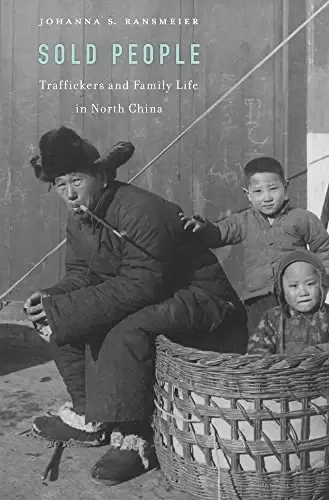
作者:JohannaS.Ransmeier/任思梅
出版社:HarvardUniversityPress
副标题:TraffickersandFamilyLifeinNorthChina
出版年:2017-3-20
页数:408
定价:USD49.95
装帧:Hardcover
ISBN:9780674971974
内容简介
· · · · · ·
A robust trade in human lives thrived throughout North China during the late Qing and Republican periods. Whether to acquire servants, slaves, concubines, or children—or dispose of unwanted household members—families at all levels of society addressed various domestic needs by participating in this market. Sold People brings into focus the complicit dynamic of human trafficking, including the social and legal networks that sustained it. Johanna Ransmeier reveals the extent to which the structure of the Chinese family not only influenced but encouraged the buying and selling of men, women, and children.
For centuries, human trafficking had an ambiguous status in Chinese society. Prohibited in principle during the Qing period, it was nevertheless widely accepted as part of family life, despite the frequent involvement of criminals. In 1910, Qing reformers, hoping to usher China into the community of modern nations, officially abolished the trade. But police and other judicial officials found the new law extremely difficult to enforce. Industrialization, urbanization, and the development of modern transportation systems created a breeding ground for continued commerce in people. The Republican government that came to power after the 1911 revolution similarly struggled to root out the entrenched practice.
Ransmeier draws from untapped archival sources to recreate the lived experience of human trafficking in turn-of-the-century North China. Not always a measure of last resort reserved for times of extreme hardship, the sale of people was a commonplace transaction that built and restructured families as often as it broke them apart.
作者简介
· · · · · ·
Johanna S. Ransmeier is Assistant Professor of History and the College at the University of Chicago.
目录
· · · · · ·
Conventions
Introduction
1. A Young Woman as Portable Property
2. The Flow of Trafficking in the Late Qing
3. New Laws and Emerging Language
4. Fictive Families and Children in the Marketplace
5. Moving Beyond the Reach of the Law
6. The Warlord’s Widow and the Chief of Police
7. Domestic Bonds
8. Talking with Traffickers
Conclusion
Appendix
Notes
Chinese Terms
Acknowledgments
Index
评论 ······
为了做作业 浮皮潦草翻完 受教也已经很多 期待中译本
值得再读多读的研究。transactional family即是日常生活经验又是目的,儒家人伦也只有通过买卖人口才能延续与实现。即便国家法律层面禁止买卖人口,但女性地位的模糊性以及trafficking能替代社会保障机制,说一套做一套或无视罢。民国时期交通运输的发展更强化了trafficking机制。从本质上来说中国的现代性革命根本没有完成,而要革命的对象,正是transactional fami…
终于读完了 定义的transactional family非常辛辣精准 人口买卖的底层原因是儒家传统的父权制逻辑
稀见档案的使用无疑是任思梅此书的一大亮点,更细心的发现则是当时所谓人口贩卖实际以交易居多。除了史料,社会史或文化史研究的成败往往取决于作者的专业素养,就像在国内,做医学史的多是医盲,做藏族史的不解佛教,习惯了两点一线的高校师生去“研究”地方社会。此书刚出时就在朋友圈里分享了一下,关注者多是书友。某些人对某些事永远是三分钟热情,比如当下还有多少人记得李文亮?
评论前必须登录!
注册